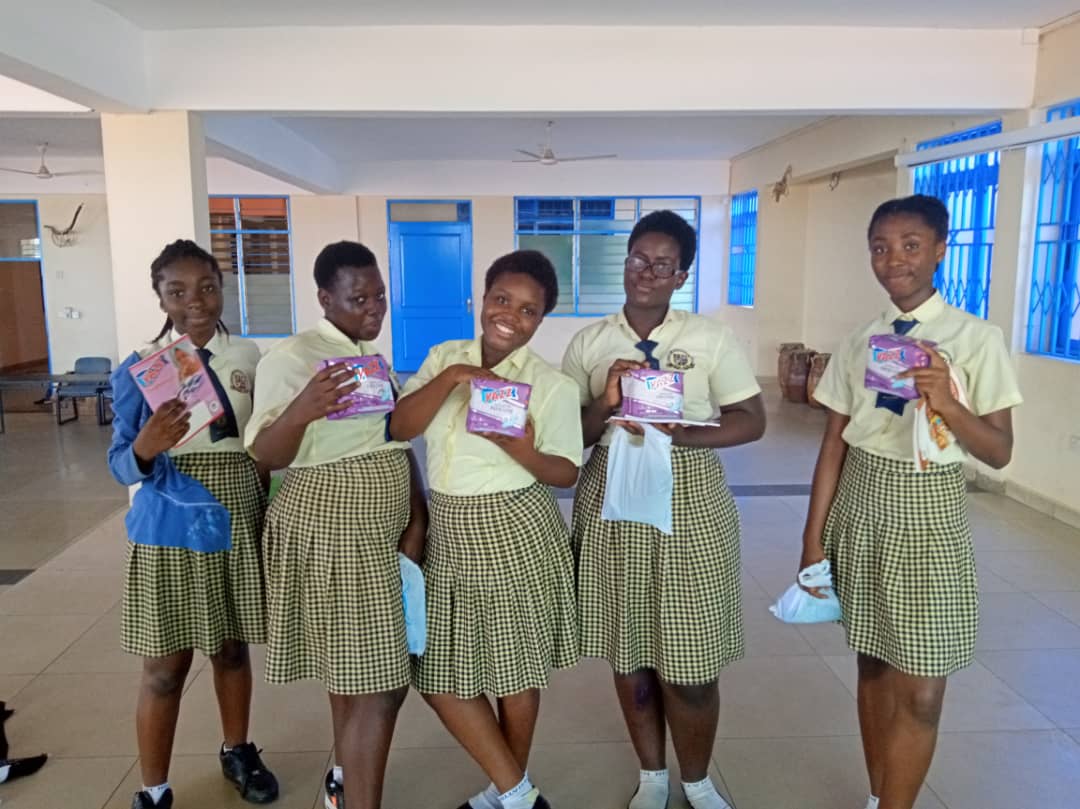…Holds Policy Dialogue on Menstrual Health Hygiene
The Coalition of Non-Governmental Organisations (NGOs) in Water and Sanitation (CONIWAS) has called for the scrapping of the 20% Import Tax on finished and raw materials for the manufacturing of sanitary pads in Ghana.
According to the Coalition the 20% Import Tax on both the raw materials for the manufacturing of sanitary pads and imported finished sanitary pads increase the cost of the products on the market, thus making it very difficult for most girls, especially those in the rural areas to afford it.
Making a presentation at a day’s Policy Dialogue on Menstrual Hygiene Management (MHM) at the Coconut Grove Regency Hotel in Accra, Chairman of CONIWAS, Attah Arhin, expressed worry about the government’s delay in scrapping the 20% Import Tax on sanitary pads as promised in their 2020 Campaign Manifesto.
The Nana Akufo-Addo led New Patriotic Party (NPP) government – during the build-up to the 2020 general elections signed a social contract with the people of Ghana to remove taxes on sanitary pads (raw materials for manufacturing of pads as well as finished products –imported sanitary pads).
A portion of the NPP Manifesto Mr. Arhin quoted to back his claim say “While supporting the private sector to ramp up production locally, the party will eliminate import duty on sanitary pads to improve health outcomes particularly for girls”
Read More: Ejura killings is an affront on Ghana’s democracy – CSOs on SDG Goal 16 laments
The Coalition led by its chairman is therefore calling on President Akufo-Addo who’s party made the promise prior to the 2020 elections to fulfill the social contract it signed with the good people of Ghana which won him the elections.
Again the Coalition has urged the government to use its agencies to take immediate steps to standardize all relevant menstrual hygiene materials, especially the locally-produced ones to ensure healthy, safety, and affordability.
Meanwhile, Sandra Boakye of Days for Girls in School, a local producer of reusable sanitary pads has thrown more light on the need for stakeholders to do more advocacy and education on the need for girls to adopt the new trend (use of reusable sanitary pads). She said this when she took her turn to present a paper on the production of sanitary materials.
According to Madam Boakye, reusable sanitary pads ensure affordability, healthy, and safety lifestyle among girls and women especially those in rural communities where poverty is rife.
She said data available shows that women made up 51.2% of Ghana’s population. Figures from 2010 Housing and Population Census (PHC) has it that about 4.6 million are living in the rural areas.
Madam Boakye explained further saying looking at the data from the 2010 PHC revealed that 21.3% of women in rural areas use cloths as sanitary pads compared to 4.2% in urban areas.
Again a whopping 35% of women and girls report they do not have the resources to manage their menstruation, this she said calls for immediate action to address the gap between the haves and the have nots.
Madam Boakye pointed out that one of the surest ways to bridge the gap between the haves and have nots is adoption of reusable sanitary pads which she believes will enable every girl everywhere to have access to sanitary pads.
Source: Franklin ASARE-DONKOH
Writer’s email: franklinadonkoh@gmail.com

